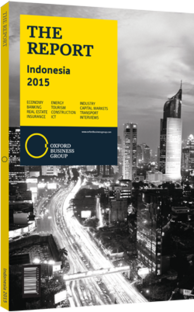Suryo Sulisto, Chairman, Indonesian Chamber of Commerce and Industry (KADIN): Interview

Interview: Suryo Sulisto
How can Indonesia become a production base for investors, rather than just a market for expansion?
SURYO SULISTO: Indonesia needs to focus on attracting foreign direct investment that is long-term and aimed at boosting the country’s industrial fabric. There are two priorities in preparing Indonesia to reach this goal. The first is infrastructure, as there is an urgent need to speed up construction where this is lacking. Second, our government needs to put forth constructive and efficient policies to create an attractive environment for investment, in which there is less bureaucratic procedure, greater legal certainty and more attractive incentives in many areas for foreign investors.
Indonesia has the opportunities, resources, and the large and diverse market necessary to attract foreign and local investors. It is underserved in many key necessities, such as energy, food and water, but these needs could be better met with the help of investors. By focusing on those two priorities, we will be able to make Indonesia an even more attractive production base for investors and make those growth opportunities a reality. Because Indonesia lacks the expertise and human resources needed to develop the country, KADIN recognises the importance of recruiting foreign experts, and therefore seeks to facilitate their experience and create a more attractive environment for all potential foreign expertise and investors.
In what ways might President Joko Widodo’s signature maritime-axis doctrine boost productivity in Indonesia’s industrial sector?
SULISTO: Indonesia is a country of more than 17,500 islands, thus President Joko Widodo’s maritime-axis doctrine is a necessary plan for the nation. Connectivity is one of the country’s major problems, and as a result, it has a very inefficient logistics system, which ultimately poses a major challenge for its development.
This is why maritime development is one of the president’s priorities. However, maritime development in a country as big as Indonesia is an enormous task, because it involves many disciplines from many different sectors: the country needs the right set of fiscal policies, security, human resources, ship and port building, and many other components.
Indonesia has an enormous maritime territory, but there is a shortage of the human capital and expertise needed to take more advantage of this space, especially in sea exploration. Indonesia lacks the specialised education required for many of these key areas, and private sector investment could contribute immensely to the effort to fill these gaps.
The Indonesian government must be open to this investment, but it should also bear in mind that it should be inclusive. This could be achieved by consulting the Indonesian people and businesses, and by coming up with the right set of smart policies for investors. Investors from the private sector could design policies together, and provide better input as well as the appropriate help and materials for their projects.
What can be done to increase the contribution of the creative industries to economic growth?
SULISTO: Indonesians are creative people. What they need is an environment where they can prosper and feel more comfortable, and the right incentives should be put in place to support and boost the creativity industry. The creation of technology centres to attract tech firms, as countries like South Korea and Taiwan have done, would be a major step forward for Indonesia. These centres have efficient government policies that allow their creative markets to thrive, and with assistance from KADIN, projects like this can take place and improve the creativity industries in Indonesia, boosting economic growth. To address this matter, the government has recently set up the Creative Economy Agency, intended to raise awareness and protection of intellectual property rights, encourage high-quality creative local entrepreneurship, and increase overall investment levels in the sectors involved. While this is a good starting point, there is much more that needs to be done.
You have reached the limit of premium articles you can view for free.
Choose from the options below to purchase print or digital editions of our Reports. You can also purchase a website subscription giving you unlimited access to all of our Reports online for 12 months.
If you have already purchased this Report or have a website subscription, please login to continue.

